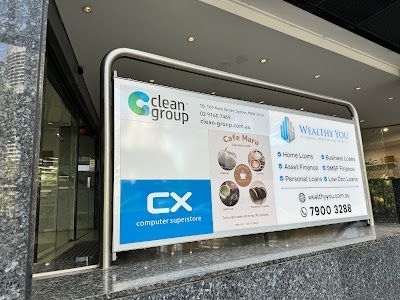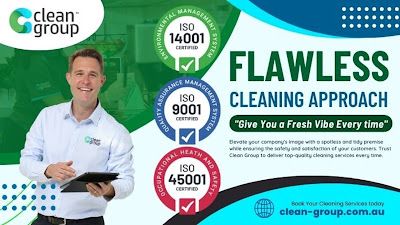
How does frequent cleaning boost business productivity?
How to Prepare Your Office for a Professional Cleaning Service
Cleaning methods are diverse and can be classified into mechanical and chemical processes. Many cleaning techniques rely on a combination of both. Washing is one of the most common methods, typically using water and soap or detergents to remove dirt and grime. Mopping is another method, which involves using a mop to clean floors, while wiping is done with a dry or moist cloth, such as paper towels or wet wipes. As a family-owned business, Clean Group places a strong emphasis on building lasting relationships with clients. They treat every client like part of the family and go the extra mile to ensure satisfaction. Over the years, Clean Group has earned the trust of a wide range of clients, including leading brands across Kings Cross, NSW. Their dedication to customer service and commitment to high-quality cleaning has made them the go-to cleaning service provider for businesses in the area. Commercial Cleaning Kings Cross The reputation Clean Group has built over the years is a testament to its outstanding service. Many leading brands in Kings Cross trust Clean Group with their commercial cleaning needs. From small businesses to large corporations, Clean Group has demonstrated its ability to meet the cleaning demands of diverse industries. Their expertise in cleaning various commercial spaces ensures that every client receives tailored services that meet the unique requirements of their workplace.. Pressure washing uses a high-pressure stream of water to clean surfaces and remove stubborn dirt. Wet cleaning refers to professional laundering methods that avoid chemical solvents, providing an eco-friendly option for cleaning textiles. Other specialized methods include abrasive blasting, which is used to remove bulk material from surfaces, and ultrasonic cleaning, where high-frequency sound waves are employed to clean delicate items like jewelry or medical instruments. In industrial contexts, carbon dioxide cleaning and flame cleaning are used to clean parts and surfaces exposed to extreme conditions. Green cleaning focuses on using environmentally friendly products and methods, minimizing the impact on the planet.
As businesses increasingly focus on maintaining high standards of cleanliness, the commercial cleaning industry must continue to adapt to changing needs and customer demands. One of the most significant trends in recent years is the rise of "disinfection cleaning." With the ongoing global health concerns, including the COVID-19 pandemic, businesses are now placing greater emphasis on sanitizing and disinfecting their premises to prevent the spread of germs and viruses. This has led to a surge in demand for cleaning companies that specialize in deep disinfection services, using advanced products and techniques such as electrostatic spraying, ultraviolet (UV) light cleaning, and fogging systems. These advanced methods provide a higher level of sanitation, ensuring that even hard-to-reach areas are properly disinfected. As businesses and facilities continue to prioritize health and safety, these disinfection services are expected to remain a staple offering in the commercial cleaning industry for the foreseeable future.
Another important aspect of the industry's evolution is the increasing focus on workforce development. As the demand for specialized cleaning services grows, so does the need for skilled workers. Many commercial cleaning companies are investing in comprehensive training programs that provide employees with the knowledge and skills necessary to handle advanced cleaning equipment and chemicals safely and effectively. These programs often include certifications that can boost an employee's qualifications and improve their job prospects within the industry. This investment in training not only enhances the quality of service but also promotes employee retention, as workers who feel that their employers are invested in their growth are more likely to remain in the job. Furthermore, providing ongoing education about the latest cleaning techniques and safety protocols ensures that employees stay up to date with industry standards, which is particularly important as cleaning technology and best practices continue to evolve.

